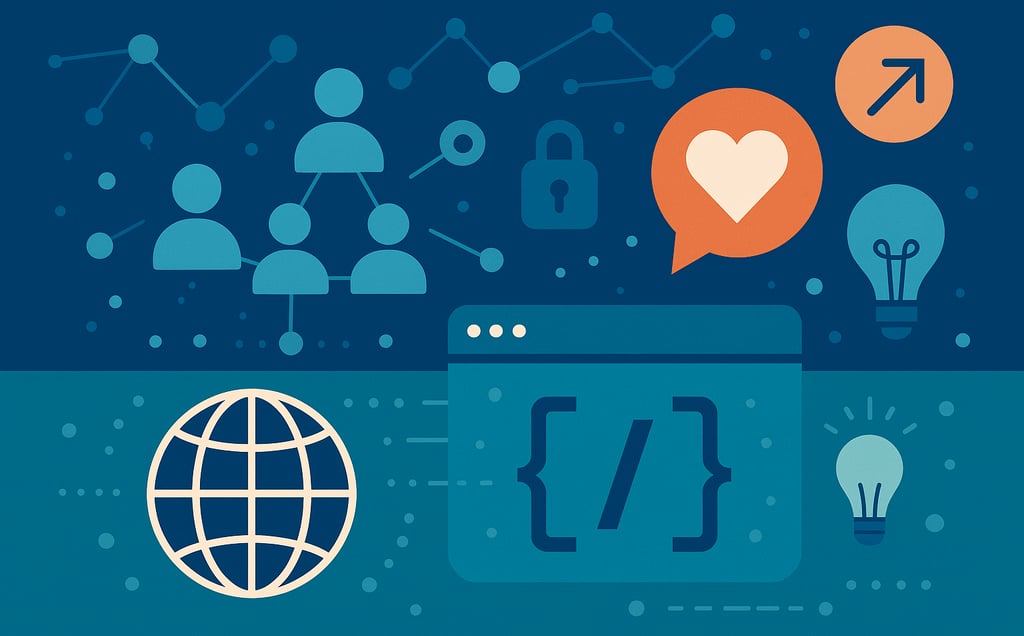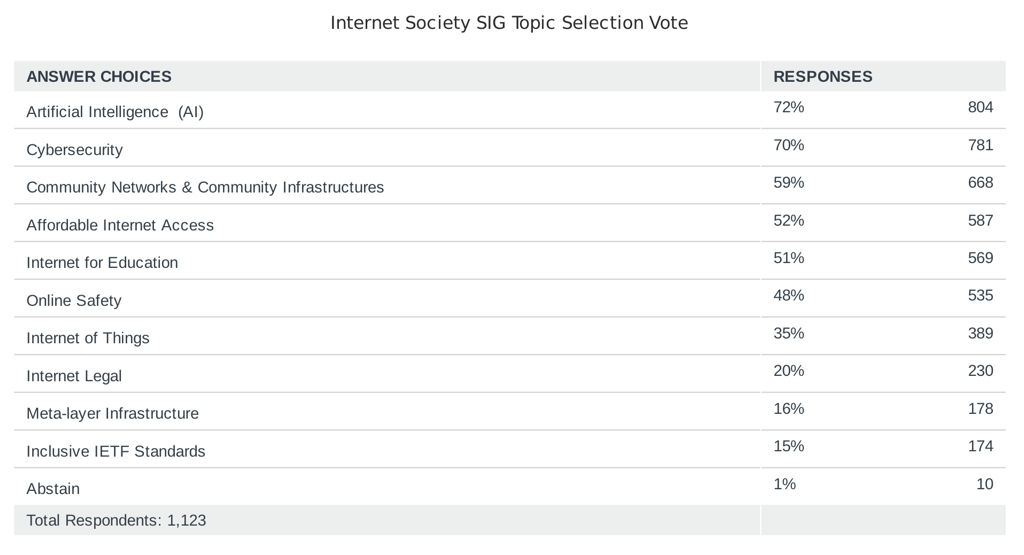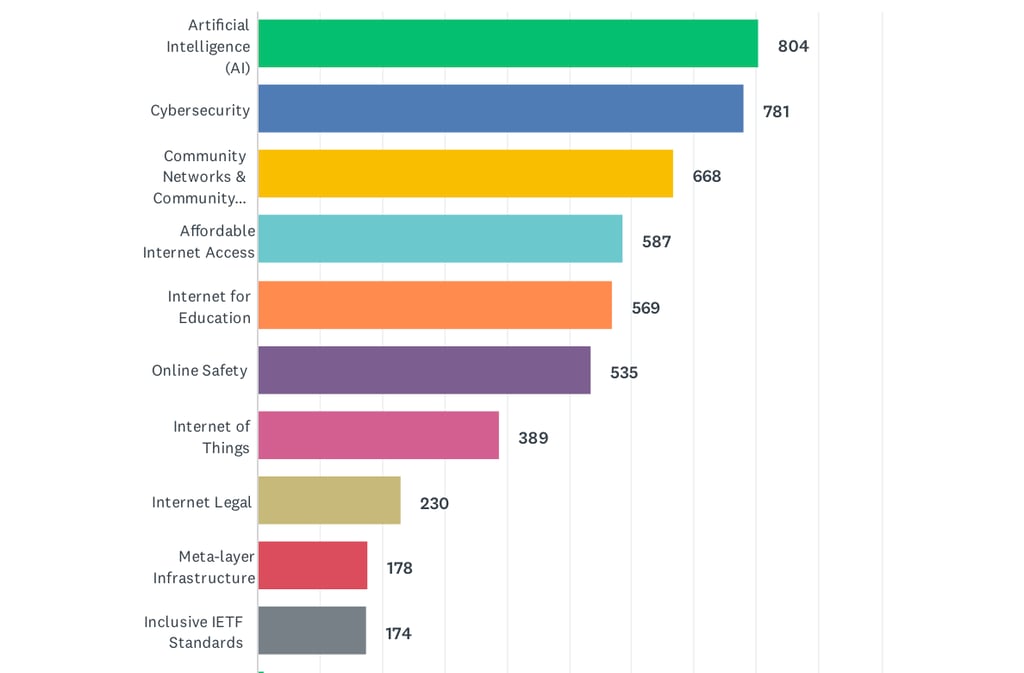Meta-Layer SIG Team Update — ISOC Election Results
The Meta-Layer SIG team’s participation in the ISOC election confirmed what we anticipated: the current SIG process favors familiar, legacy topics and makes it difficult for new, frontier ideas to gain traction. While our proposal wasn’t selected, we built a strong, intergenerational team, sparked important dialogue about innovation within ISOC, and discovered new paths forward—including forming an independent Meta-Layer Chapter eligible for Beyond the Net grants. This next phase will focus on building partnerships and continuing to advance a decentralized, people-centered web above the page.
11/10/20253 min read


The results are in, and they played out as we anticipated. Out of the ten SIGs in the election, only one new SIG was selected — Community Networks & Community Infrastructure. All others were renewals of existing SIGs. The full results are available here. We’ve also included a chart and table below summarizing the data.
We were a bit surprised to learn that fewer than 1,200 ISOC members voted - less than 1% of the organization’s 150,000 global membership. That level of participation underscores the need for more promotion, transparency, and engagement in the SIG process.
While this isn’t the outcome we hoped for, it’s entirely consistent with the structural dynamics we outlined in our briefing: the process strongly favors familiar topics and legacy SIGs, regardless of current activity levels.
Here’s a quick snapshot of what we observed:
Only one of the top five SIGs was new, even though several existing SIGs show low or intermittent activity (e.g., AI, Internet for Education).
Cybersecurity SIG became active only a month before the vote and still retained its position — a clear sign that brand familiarity outweighs engagement metrics.
Online Safety, one of the most active and visible SIGs, was not renewed — likely a casualty of being listed beneath the fold on the ballot.
Inclusive IETF Standards, a thoughtful and forward-looking proposal, received the fewest votes, suggesting that lack of familiarity is an even stronger predictor than topic quality or relevance.
All of this underscores what we already know: new ideas need new processes. When metrics on engagement, visibility, and activity aren’t published, members have little to guide their votes beyond name recognition. It’s a structural issue, not a judgment on merit — and one we’ve already addressed directly in our letter to the SIG Program team.
Still, we achieved a great deal. We built a strong, intergenerational team, developed a strong plan, and sparked important dialogue about how ISOC can evolve to support frontier ideas. The work continues, both inside and outside ISOC.
As we wrote in our briefing:
“We may not prevail in this vote, but we continue the work regardless.”
This experience has confirmed our hypothesis, and clarified the mission ahead. The Meta-Layer effort isn’t just about one SIG; it’s about ensuring that the next web, and the governance around it, remains open to new layers of civic and technological innovation.
We also discovered something important in the process: SIGs are not eligible for Beyond the Net (BTN) grants because they are not independent of ISOC. We didn’t know this going in. During our debrief, Twahir Hussein Kassim suggested that we consider forming a Meta-Layer Chapter — an independent chapter focused on this mission. Doing so would allow us to apply for Beyond the Net grants, which support chapter-led projects aligned with ISOC’s goals (program details here). Chapters can hold up to two active grants totaling $55,000 at any given time, and applications open January 6th.
Forming a Meta-Layer Chapter would give us a more sustainable pathway to funding, visibility, and collaboration. In the meantime, we’ll work closely with our local chapters wherever possible to align efforts and build support.
We’ll regroup soon to discuss next steps — both the near-term collaborations with ISOC chapters and the roadmap for launching the Meta-Layer Internet Society Chapter.




Contribute | Build | Participate
Join us to shape the future of the web.
Connect
© 2025. The Meta-Layer Initiative. All rights reserved.
Ecosystem
Bridgit DAO
Presence AI
Partners
Learn
About
What is a Meta-Layer
Meta-Layer Infra SIG
Join Us
Onchain
Digital Badge
FAQ
Glossary
Roadmap
Blog
